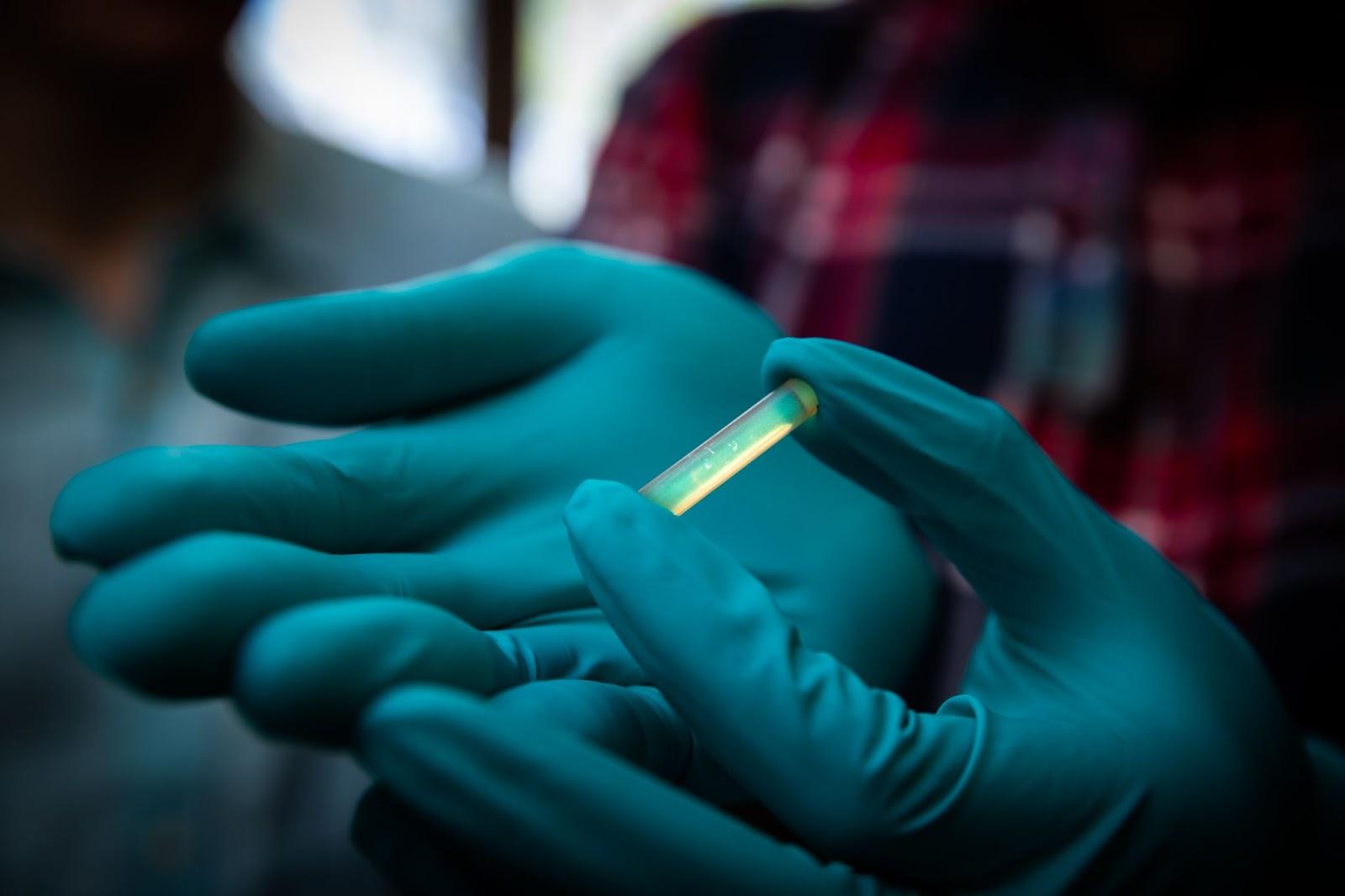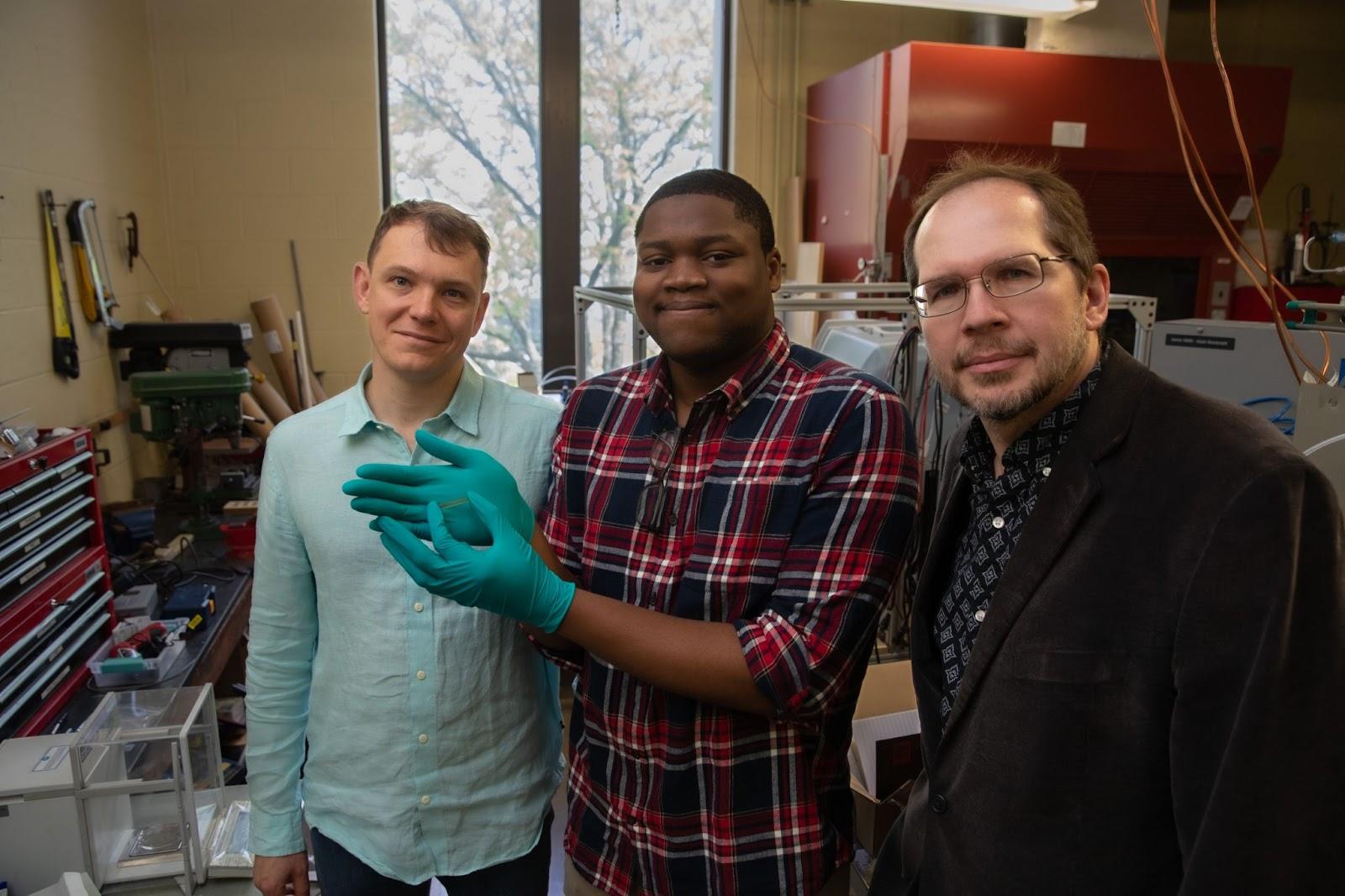Chemical Engineering Star Jason Ogbebor's Journey from NJIT to MIT

Ever since Jason Ogbebor set foot in a chemistry classroom in high school, he knew he was destined to conduct high-level, impactful research. Looking to science legends — Mendeleev, Bohr, Einstein — Ogbebor is realizing his dreams and is on his way to pursue a Ph.D. at MIT.
“I wanted to be a pioneer in making discoveries like the historical scientists did. I always romanticized what those scientists in Europe would do. They had the time, like Newton, to sit in their sheds and work out their observations,” Ogbebor said, recalling his early passion for research. “I wanted to do that, to solve the universe like a puzzle."
He never liked the idea of a corporate structure, instead opting to see himself in a lab conducting experiments and doing professional research. Fortunately, Ogbebor found that and more at NJIT. He will soon accomplish something rare for undergraduate students, let alone dedicated undergraduate researchers — first authorship in a peer-reviewed published paper.
Impactful Research
Ogbebor’s research is being conducted within small glass tubes that have microscopic, worm-like pores running throughout. He fills these nanopores with water and uses ultrasound probing to determine the water’s elasticity. Elasticity measures a fluid's ability to resist deformation under stress, and this property can provide insight into how the fluid will respond to changes in pressure, temperature or other environmental factors.
Knowing elasticity for a fluid affects engineering applications (designing hydraulic systems), geological applications (for the exploration for natural resources), medical applications (changes in the elastic properties of tissues may indicate the presence of cancerous cells), and materials science (exploring the use of fluids with specific elastic properties in the development of soft robotics).
While water’s elasticity is well-known in bulk amounts, it is not as familiar on the tiny, nanometer scale — the crux of Ogbebor’s research. Results of this research can have an immediate impact. One such area would be water filtration.
Many filters use a nanoporous carbon that lets water flow through while contaminants stick to the walls. As contaminants build up, the pore size shrinks. Using the ultrasonic measurement framework being developed in this lab, it can be instantly determined how much useful life is left in the filter.

“I’m a chemical engineer, and sensing is very important. You want to be able to prove what’s happening when you can’t open it up while it’s running,” Ogbebor explained. “There are plenty of chemical processes that use filters, or membranes, for separation.”
Faculty Support and Guidance
Before Ogbebor arrived, he considered undergraduate research a black box, he wasn’t quite sure how to get started or what to expect. “I thought undergraduate research was part of a class,” he recalled. “I thought you would take the class and do research on a project, and that’s it.”
Upon arrival though, he discovered research was all over and all he had to do was take the initiative and ask — precisely what he did. One of his first calls was to Alexei Khalizov, associate professor of chemistry and environmental science, as the experimental nature of his research was fascinating to him. Even though his research didn’t start right away, Ogbebor kept in touch. “As a freshman, I was still getting my bearings. I was thinking about research, and then my classes got more difficult and I had to focus on them.”
Then, in his junior year in the throes of the pandemic, Ogbebor felt established enough to pursue another opportunity. This time with Gennady Gor, associate professor of chemical and materials engineering. Gor’s research is based on molecular simulations, which allowed Ogbebor the chance to conduct research from home while lockdown was in effect.
"Jason is a curious problem solver.” — Professor Gennady Gor
Under Gor’s tutelage, Ogbebor started doing molecular simulations on water confined in nanoporous carbon to determine the elastic properties when it's in that state. Jason was building the foundations for nanoporous research when Gor re-introduced him to Khalizov to move from modeling to experimentation.
This exposure to both sides of the science proved pivotal to Jason’s undergraduate research career. In addition to pursuing groundbreaking research at NJIT, Jason demonstrated that he is also an excellent research communicator and presented his work at symposia. Most notably, he was one of only 24 students in the country selected for the Future Leaders in Chemical Engineering Symposium where he showcased his work and networked with faculty and peers.

“Gor guided my decision-making and taught me that a complete research work is really a story. Each bit of work helps tell the story of what you're doing. [Khalizov] taught me experimental instinct … Theory and experiments, you need them both.” Gor and Khalizov often work together, and Ogbebor is a shining example of the effects of a collaborative environment.
Ogbebor is able to take advantage of NJIT’s unique position where the institution is big enough to be able to conduct R1-level research, yet research faculty remain directly accessible to undergraduate students.
“It is rare for undergrads at most R1 universities to work one-on-one with a research faculty member, let alone two [with Khalizov], but that is the case at NJIT,” said Gor. “You can’t teach motivation like Jason has, but we have the opportunity to directly support and mentor these students, and that’s what we were able to do.”
His research and communication skills are also what earned him first authorship on the publication (due to be published summer 2023), as he wrote the comprehensive draft of the paper.
I liked the research opportunities that NJIT offered, especially as an R1.
With experience now under his belt, Ogbebor took advantage of every opportunity he could find to further whet his research appetite. He participated in the Undergraduate Research and Innovation Program and the McNair Post-Baccalaureate Achievement Program. “These are good opportunities to be funded for your research, to get paid for something that you like to do,” he said. All of these chances to log research hours are highly beneficial, he added. “You’ve got four years to get research experience in college, and it’s right there, and you can get paid for it.”
For students that are getting ready to blaze the research path like his, Ogbebor had additional, more familiar advice. Network.
“Make good connections and make good friendships with the professors and the grad students in that lab, they can teach you a lot. They can teach you how to be a good researcher even before you get to grad school, and they teach you all the necessary skills for you to be successful later in life.
“What matters more than the prestige of a school is research output and the research that you’re doing. You don’t get chosen, you put yourself out there to do it.”